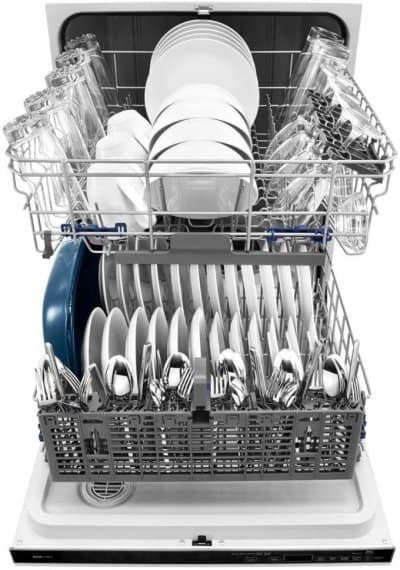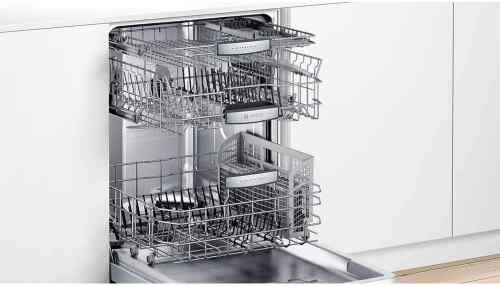A dishwasher is a convenient appliance that saves you time and effort in the kitchen. However, over time, it can accumulate residue, food particles, and mineral deposits that can affect its performance and even lead to unpleasant odors. To keep your dishwasher running smoothly and ensure your dishes come out sparkling clean, regular cleaning is essential. In this article, we will guide you through the process of cleaning out your dishwasher effectively.
Dishwashers have become an indispensable part of our daily lives, but we often overlook the need to clean them. Neglecting regular cleaning can result in poor performance, unpleasant smells, and even the growth of bacteria. By following these simple steps, you can maintain the hygiene and efficiency of your dishwasher, extending its lifespan and enjoying consistently clean dishes.
Table of Contents
Why Cleaning Your Dishwasher is Important
Cleaning your dishwasher is crucial for several reasons. Firstly, it ensures that your dishes are thoroughly cleaned and sanitized, eliminating any traces of dirt or bacteria. Secondly, regular cleaning prevents clogs and blockages, which can hinder the water flow and reduce the dishwasher’s effectiveness. Lastly, a clean dishwasher helps prevent unpleasant odors from lingering on your dishes and in your kitchen.
Signs That Your Dishwasher Needs Cleaning
It’s important to be aware of the signs that indicate your dishwasher needs cleaning. Some common indicators include:
1. Lingering Odors
If you notice a persistent unpleasant odor emanating from your dishwasher, it’s a clear sign that it’s time to clean it. Food particles, grease, and soap scum can accumulate over time and create a breeding ground for odor-causing bacteria.
2. Cloudy or Spotty Dishes
When your dishes come out of the dishwasher looking cloudy or with spots, it’s a sign that mineral deposits have built up. This residue can affect the dishwasher’s spray arm and water circulation, resulting in inadequate cleaning.
3. Slow Drainage
If you observe that your dishwasher is draining slowly or incompletely, it may indicate a clogged or dirty filter. A blocked filter prevents proper drainage, leading to standing water and potential odor issues.
4. Unusual Noises
Unusual noises during the dishwasher’s operation, such as grinding or buzzing sounds, can indicate debris or foreign objects lodged in the spray arms or pump. Cleaning the dishwasher can help eliminate these noises and restore optimal functionality.

Steps to Clean Your Dishwasher
Cleaning your dishwasher is a straightforward process that can be accomplished with a few simple steps. Let’s dive into the details:
1. Gather the Necessary Supplies
Before starting the cleaning process, gather the following supplies:
- Dish soap
- Baking soda
- White vinegar
- Soft-bristled brush
- Microfiber cloth
2. Remove and Clean the Filter
Start by removing the dishwasher’s filter, located at the bottom of the interior. Rinse the filter under warm water to remove any debris, then use a soft-bristled brush to scrub away any remaining residue. This step is crucial for maintaining proper water flow and preventing clogs.
3. Clean the Spray Arms
The spray arms distribute water throughout the dishwasher, ensuring thorough cleaning. However, they can become clogged with food particles or mineral deposits over time. Remove the spray arms and soak them in a mixture of warm water and vinegar. Use a brush to remove any debris, rinse them thoroughly, and reattach them to the dishwasher.
4. Wipe Down the Interior
Next, wipe down the interior of the dishwasher using a microfiber cloth dampened with a solution of warm water and dish soap. Pay close attention to the door, walls, and the area around the detergent dispenser. Remove any stubborn stains or residue with a paste made of baking soda and water, gently scrubbing with a cloth or sponge.
5. Clean the Door and Control Panel
To clean the dishwasher’s door and control panel, dampen a cloth with vinegar and wipe them down thoroughly. Vinegar helps remove grease and grime, leaving a streak-free finish. Be sure to clean around the buttons and switches, as dirt and residue can accumulate in these areas.
6. Run a Cleaning Cycle
After completing the previous steps, run a cleaning cycle with no dishes inside. Pour a cup of white vinegar into a dishwasher-safe bowl or measuring cup and place it on the top rack. Sprinkle a cup of baking soda on the bottom of the dishwasher. Then, run a hot water cycle to allow the vinegar and baking soda to work together, eliminating odors and removing any remaining buildup.
7. Maintain Regular Cleaning
To keep your dishwasher in optimal condition, it’s essential to perform regular cleaning maintenance. Follow the previous steps every one to two months, or as needed, to prevent the accumulation of residue and ensure the longevity of your appliance.
Tips for Preventing Dishwasher Odor
In addition to regular cleaning, there are some simple practices you can follow to prevent dishwasher odor:
- Scrape off excess food from dishes before placing them in the dishwasher.
- Run the garbage disposal before starting the dishwasher to prevent food particles from entering.
- Leave the dishwasher door slightly ajar after each cycle to allow airflow and reduce moisture buildup.
- Use a dishwasher cleaner or freshener periodically to keep your dishwasher smelling fresh.
- Inspect and clean the rubber seal around the dishwasher door regularly to prevent mold growth.
Can I use bleach to clean my dishwasher?
No, bleach can damage the rubber components and stainless steel parts of your dishwasher. Stick to using vinegar and baking soda for safe and effective cleaning.
How often should I clean my dishwasher?
It is recommended to clean your dishwasher every one to two months, or more frequently if you notice signs of residue or odors.
Can I wash the dishwasher racks in the dishwasher itself?
It’s generally best to hand wash the dishwasher racks to avoid potential damage to the dishwasher’s spray arms or other components.
What should I do if my dishwasher still smells after cleaning?
If the odor persists after cleaning, try wiping down the interior with a cloth soaked in hydrogen peroxide, as it can help eliminate stubborn odors.
Can I use regular soap in the dishwasher?
No, regular dish soap creates excessive suds that can lead to overflowing and damage to your dishwasher. Use dishwasher detergent specifically designed for automatic dishwashers.
Conclusion
Regular cleaning is essential for maintaining the performance and hygiene of your dishwasher. By following the step-by-step guide provided in this article, you can effectively clean out your dishwasher and ensure your dishes come out spotless. Remember to perform these cleaning steps periodically and implement preventive measures to avoid unpleasant odors and maintain optimal dishwasher functionality.

